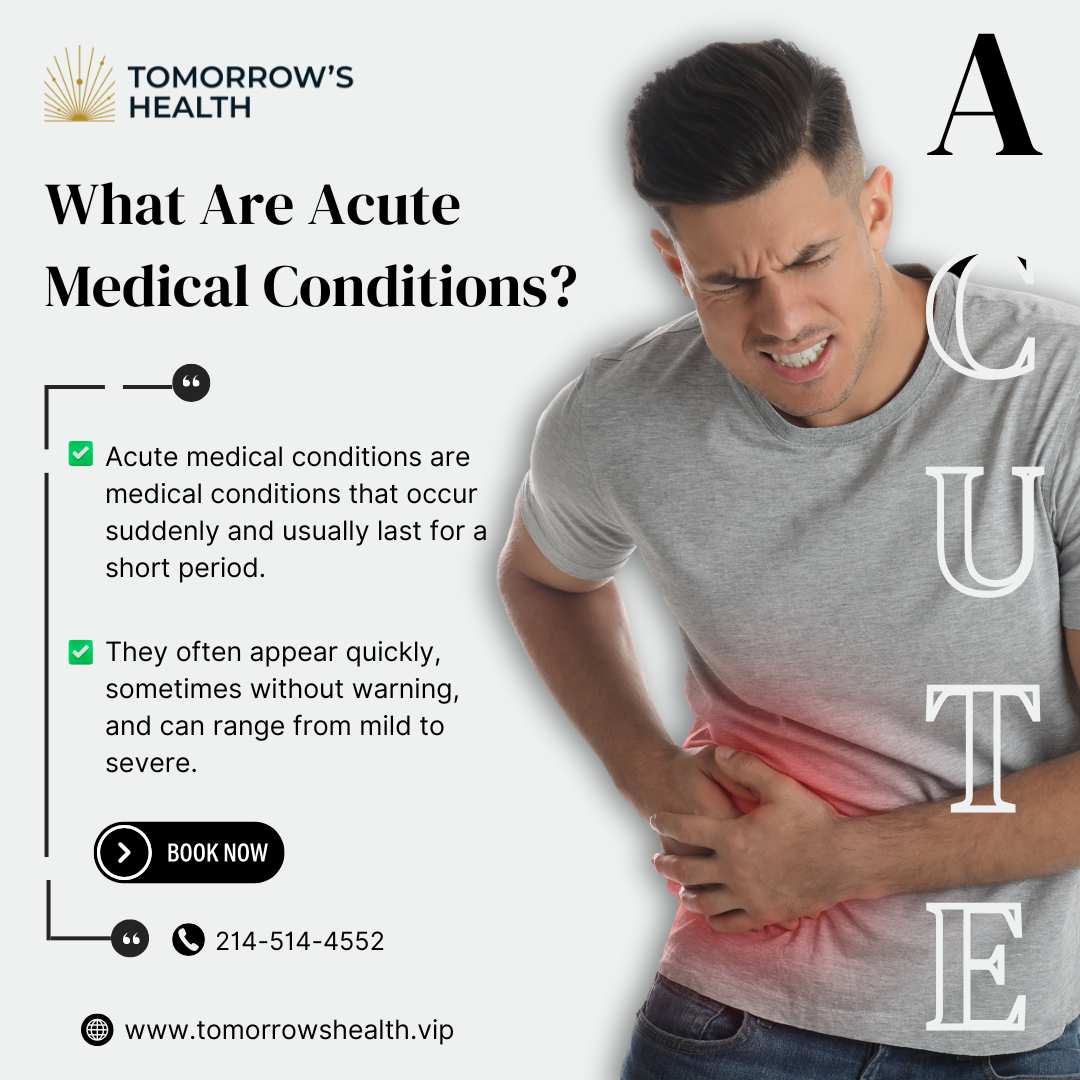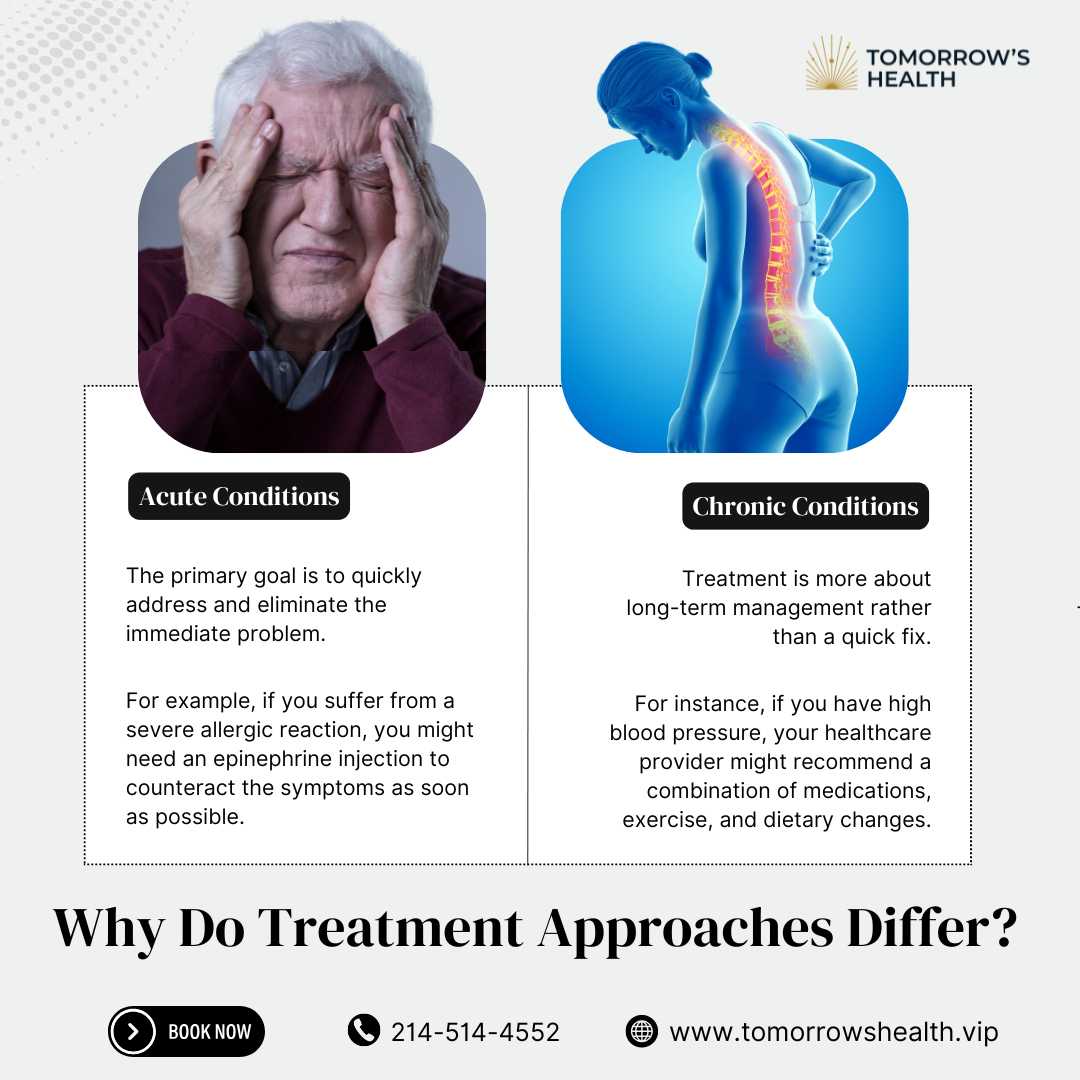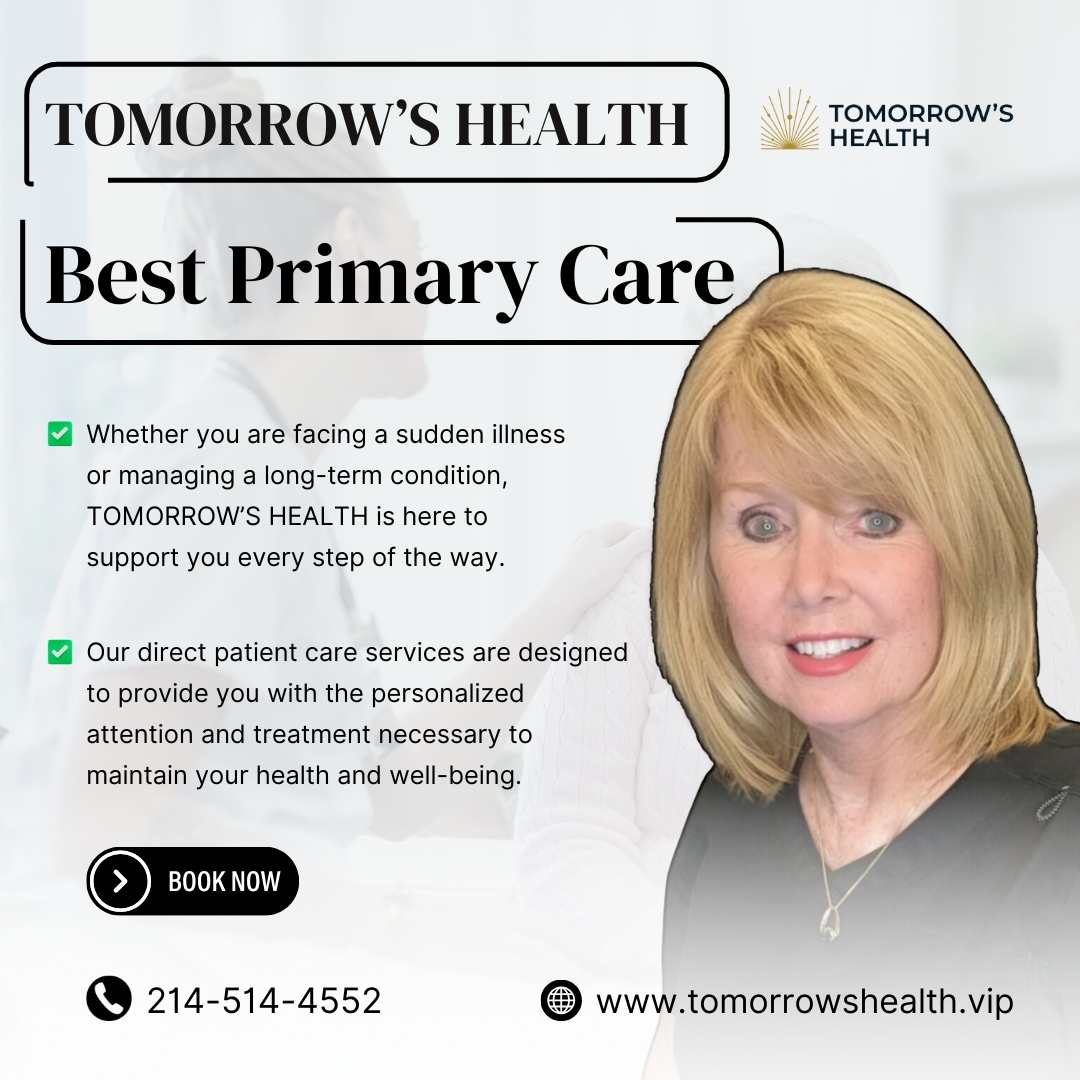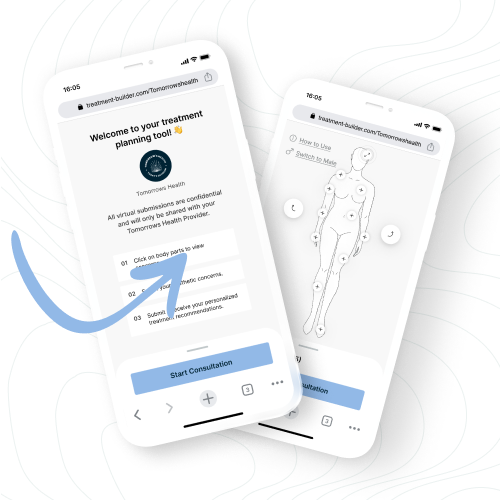
Chronic and Acute Conditions in Mckinney, TX
When it comes to your health, knowing the difference between chronic and acute medical conditions is essential. These two types of illnesses are described frequently in healthcare settings, but they have very different meanings, treatments, and implications.
By understanding how each condition works, when to seek help, and the importance of proper management, you can take better care of yourself or your loved ones. This guide will explain everything you need to know about chronic and acute medical conditions in Mckinney, TX.
What Are Acute Medical Conditions?
Acute medical conditions are medical conditions that occur suddenly and usually last for a short period. They often appear quickly, sometimes without warning, and can range from mild to severe. In many cases, these conditions need immediate attention from a primary care provider in Mckinney, TX.

The main feature of acute conditions is that they have a clear starting point and, with proper treatment, a clear end.
For instance, if you develop a bacterial infection like strep throat, a course of antibiotics typically helps you recover within a few days. Because acute conditions are often temporary, timely medical treatment is usually effective in returning you to good health.
What Are Chronic Medical Conditions?
Chronic conditions are long-term health problems that develop slowly over time and can last for many years or even a lifetime. These conditions might not have a complete cure, but they can usually be managed with the right care and lifestyle changes. Common examples of chronic illnesses include diabetes, high blood pressure, arthritis, and asthma.
Unlike acute conditions, chronic illnesses do not simply go away. They require ongoing monitoring and care to prevent complications and maintain a good quality of life.
For example, someone with diabetes needs to regularly check their blood sugar levels, take prescribed medications, and adhere to a healthy diet. This continuous management is crucial for avoiding complications such as nerve damage, vision problems, or heart disease.
Key Differences Between Chronic and Acute Conditions
Understanding the differences between chronic and acute conditions can help you know how to manage them.
Duration
Acute Conditions
These are short-term conditions that usually resolve completely with treatment.
Chronic Conditions
These are long-lasting conditions and may require lifelong management.
Onset
Acute Conditions
They appear suddenly, often with clear symptoms that demand immediate attention.
Chronic Conditions
They develop gradually over time, sometimes with symptoms that slowly worsen.
Acute Chronic Conditions Treatment in Mckinney, TX
Acute
Immediate treatment is needed to address the problem quickly.
Chronic
Require ongoing care, lifestyle adjustments, and regular monitoring to control symptoms and prevent the condition from getting worse.
Outcome
Acute Conditions
With prompt treatment, these conditions often resolve completely, allowing you to return to normal life.
Chronic Conditions
These conditions are managed over time and require continuous attention to keep them under control.
Why Do Treatment Approaches Differ?
The way Primary Care Provider treat acute and chronic conditions vary because these illnesses are fundamentally different in how they affect the body:

Acute Conditions
The primary goal is to quickly address and eliminate the immediate problem. For example, if you suffer from a severe allergic reaction, you might need an epinephrine injection to counteract the symptoms as soon as possible. In these cases, the treatment is designed to restore your health in the shortest time possible.
Chronic Conditions
Treatment is more about long-term management rather than a quick fix. For instance, if you have high blood pressure, your healthcare provider might recommend a combination of medications, exercise, and dietary changes. The focus is keeping your blood pressure under control over time and preventing complications that might arise from poorly managed hypertension.
The Importance of Self-Management in Chronic Conditions
If you live with a chronic condition in Mckinney, TX, managing it day-to-day is critical. Self-management means taking an active role in your healthcare, which can lead to a better quality of life and fewer complications. Here are some important reasons to embrace self-management:
Prevention of Complications
By carefully monitoring your condition, such as regularly checking your blood sugar levels if you have diabetes, you reduce the risk of serious complications. This proactive approach helps protect your overall health.
Enhanced Quality of Life
Following your treatment plan, making healthy dietary choices, and engaging in regular physical activity can help you feel better and stay active despite your chronic condition.
Reduced Healthcare Costs
Effective self-management often means fewer visits to the emergency room or hospital, leading to lower overall healthcare expenses over time.
Self-management practices might include taking your medications exactly as prescribed, keeping a diary of your symptoms, eating a balanced diet, exercising regularly, and scheduling periodic check-ups with your Primary Care Provider. All of these steps work together to keep your chronic condition under control.
When to Seek Medical Help for Acute Conditions
Acute conditions often need fast action. Hence, it is important to know when to see a Primary Care Provider. Some signs that you should seek immediate medical attention include:
- Severe or worsening pain
- A high fever that does not subside
- Difficulty breathing or shortness of breath
- Sudden changes in vision, speech, or coordination
- Uncontrolled bleeding or severe injuries
If you experience any of these symptoms, it is best to consult a healthcare professional without delay. For example, if you are in McKinney, TX, and notice these signs, you can rely on local primary care providers like TOMORROW’S HEALTH to deliver prompt and effective care.
When to Seek Medical Help for Chronic Conditions in McKinney, TX,
For chronic conditions, regular check-ups and continuous monitoring are essential. However, there are times when you may need more immediate attention. The signs that you need to seek medical help for chronic conditions include:
- A sudden worsening of symptoms
- The appearance of new or unusual symptoms
- Experiencing side effects from medications that are concerning
- Difficulty managing your condition at home, despite following your treatment plan
In such cases, especially if you are in McKinney, TX, it might be necessary to contact a primary healthcare provider who specializes in long-term care like TOMORROW’S HEALTH. We can adjust your treatment plan or provide additional support to better manage your condition.
How TOMORROW’S HEALTH Supports Patients with Both Acute and Chronic Conditions
At TOMORROW’S HEALTH, we understand that health challenges come in many forms. Whether you are dealing with a sudden illness or managing a long-term condition, our goal is to provide personalized, compassionate care tailored to your needs.
For Acute Conditions:
We offer prompt and effective treatment options designed to quickly address your immediate health concerns. Our experienced team is well-equipped to handle urgent medical issues with the utmost care and attention.
For Chronic Conditions:
We focus on long-term care and prevention strategies. Our services include regular check-ups, personalized treatment plans, and continuous support to help you manage your chronic condition. With our guidance, you can maintain a healthy lifestyle and minimize complications.
At TOMORROW’S HEALTH, our comprehensive approach is aimed at empowering you to take control of your health.
We are committed to helping you achieve a better quality of life through sustained health and overall well-being.
Frequently Asked Questions
What is the main difference between chronic and acute conditions?
Acute conditions appear suddenly and are short-term, while chronic conditions develop slowly and last a long time, often requiring lifelong management.
Can an acute condition develop into a chronic condition?
Yes, in some cases, an acute condition may lead to chronic issues if it is not treated properly. For instance, an acute injury like a severe sprain might cause ongoing pain if it does not heal correctly.
How can I manage a chronic condition effectively?
Effective management involves following your Primary Care Provider’s treatment plan, adopting a healthy lifestyle, regularly monitoring your condition, and attending all scheduled medical appointments.
When should I see a Primary Care Provider for an acute condition in McKinney, TX?
Seek medical help if you experience severe symptoms such as high fever, intense pain, difficulty breathing, or uncontrolled bleeding.
What services does TOMORROW’S HEALTH offer for chronic conditions?
We provide comprehensive care plans that include regular monitoring, personalized treatment options, and support for effective self-management.
Does TOMORROW’s HEALTH treat acute conditions in McKinney, TX?
Yes. Our team is equipped to treat acute conditions promptly in McKinney, TX, ensuring you receive the urgent care you need.
How can I schedule an appointment with TOMORROW’S HEALTH?
You can easily contact us to set up an appointment for primary care in McKinney, TX, and receive the personalized care you deserve.
Take Control of Your Health Today at TOMORROW’S HEALTH: Best Primary Care in McKinney, TX
Whether you are facing a sudden illness or managing a long-term condition, TOMORROW’S HEALTH is here to support you every step of the way.

Our direct patient care services in McKinney, TX, are designed to provide you with the personalized attention and treatment necessary to maintain your health and well-being.
By understanding the differences between chronic and acute conditions and knowing when to seek treatment, you are better prepared to manage your health proactively. Remember, you do not have to face these challenges alone.
TOMORROW’S HEALTH is committed to being with you every step of your journey toward a healthier life.
All you need to do is Schedule an Appointment or give us a call at 214-5144-552.


